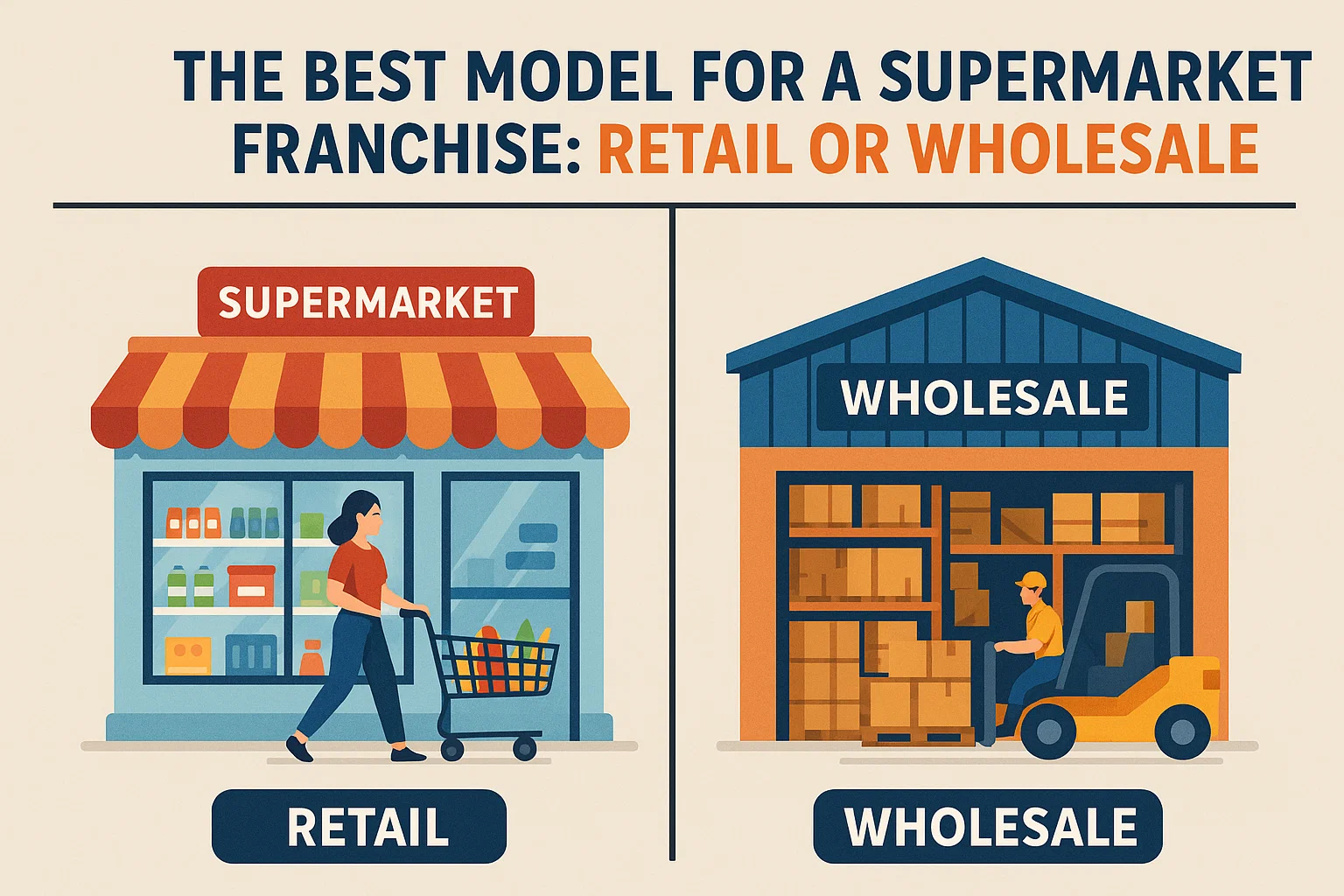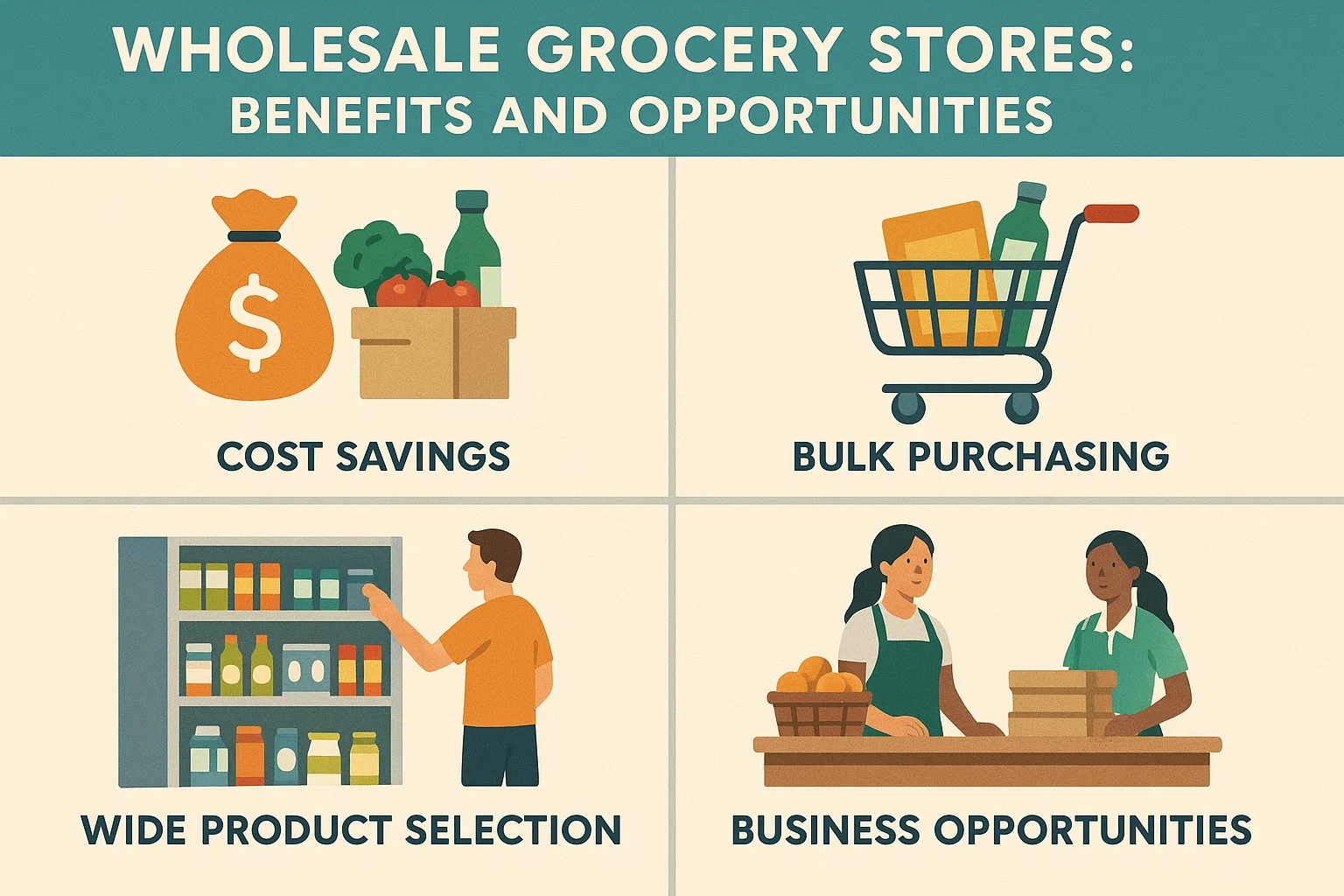Supermarket franchises are becoming more attractive for entrepreneurs as the grocery market continues to grow. You’ll need to make a decision if you want to enter this profitable market: wholesale or retail supermarkets?
The choice you make will impact everything, from the way your business operates to how much profit it makes. The two models have distinct benefits and challenges, which can determine your success in business. Before investing your time or capital in a franchise, it is important to understand the differences.
Explore both options to determine the best model for your supermarket franchise based on your goals and available resources.
Understand Retail Supermarket Franchises
Franchises that operate retail supermarkets sell products to consumers directly. The grocery stores are focused on providing a great shopping experience to families, individuals, and households purchasing household essentials, daily necessities, fresh produce and other items.
Retail franchises usually have organised aisles with attractive displays and counters for customer service. Owners of retail stores prioritise accessibility and convenience, staying open longer hours in order to meet the needs of their community.
Retail grocery chains that are successful build their brand on a variety of products, low prices, and strong relationships with customers. The stores stock everything, from cleaning products to fresh produce. They cater to a wide range of shopping tastes.
Wholesale Supermarkets Franchise Approach
Wholesale supermarkets are different because they buy large quantities of products from distributors and manufacturers, before selling them in bulk to businesses. They sell to small supermarkets, restaurants, hotels and commercial customers.
Franchise operations need larger facilities for storage and are more focused on inventory control than on the customer’s experience. Wholesale supermarkets prioritise reliable supply chains and competitive bulk prices over aesthetic appeal.
Wholesale requires strong relationships between businesses and a thorough understanding of their purchasing habits. The success of the wholesale model depends on offering competitive pricing and maintaining constant stock levels.
The advantages of retail grocery franchises
More Profits Per Unit
Wholesale operations typically have better margins for individual items than retail supermarkets. You can use standard retail markups on products since you are selling to the consumer directly.
Building Customer Loyalty
The retail grocery store excels at building lasting relationships with the local families. Customers develop habits and preferences over time, which leads to a steady stream of revenue and marketing through word-of-mouth.
Flexible Pricing Strategies
Owners of retail franchises can use dynamic pricing, targeted discounts, and seasonal promotions. You can respond to local and competitor market conditions quickly with this flexibility.
Reduced Initial Investment Required
Retail supermarkets require less capital up front than wholesale businesses. The storage space requirements are smaller, and you can start with a moderate level of inventory.
Wholesale Grocery Stores: Benefits and Opportunities
The Volume-Based Revenue Potential
Large-scale transactions can bring in substantial revenues for wholesale supermarkets. One commercial customer could buy what dozens or even hundreds of retail clients would.
Expectable business relationships
In contrast to consumer sales, B2B clients often have regular order patterns. This allows for a more stable cash flow. Contracts with small businesses or restaurants that last a long time can create steady revenue.
Reduction in Marketing Costs
Franchises that sell wholesale groceries spend less money on marketing to consumers and improving the store’s aesthetics. You shift your focus to building business relationships rather than trying to attract foot traffic.
Operating Efficiency
Bulk handling, reduced checkout procedures, and simplified inventory management can help wholesale operations achieve higher efficiency.
Also Read: How Profitable Is a Grocery Store Franchise in India?
Challenges Each Model Faces
Franchises in retail supermarkets have to navigate local competition and changing consumer tastes, as well as higher operating costs. Maintaining attractive displays, managing perishable inventories, and staffing roles in customer service require constant attention.
Wholesale grocery chains face a variety of obstacles. These include longer payment cycles by business clients, increased storage and logistic costs, as well as reliance on smaller but more important customers. The purchasing power of commercial clients can be significantly affected by economic downturns.
The Right Franchise for You
Choose between the retail or wholesale model of supermarket franchising based on your capital available, market conditions and strengths. Wholesale is best suited to locations that have good access to transportation and are commercially active. Retail, on the other hand, works better in areas where there’s a lot of foot traffic.
Assess your level of comfort with business-to-business versus customer service. Retail requires daily interaction with diverse customers, while wholesale demands relationship-building with professional buyers.
What are your next steps in supermarket franchising?
The retail supermarket and the wholesale supermarket models are both viable options for business success. Your specific situation, your market research and your long-term business goals will determine the best choice.
Analyse the local demand for your product, locations available, and levels of competition. To learn more about the support system, investment needs, and operational requirements of established franchises in these categories, contact them.
Be aware that a successful franchise requires dedication, planning and an understanding of the unique needs of each model. Do thorough research prior to making such a crucial business decision.



